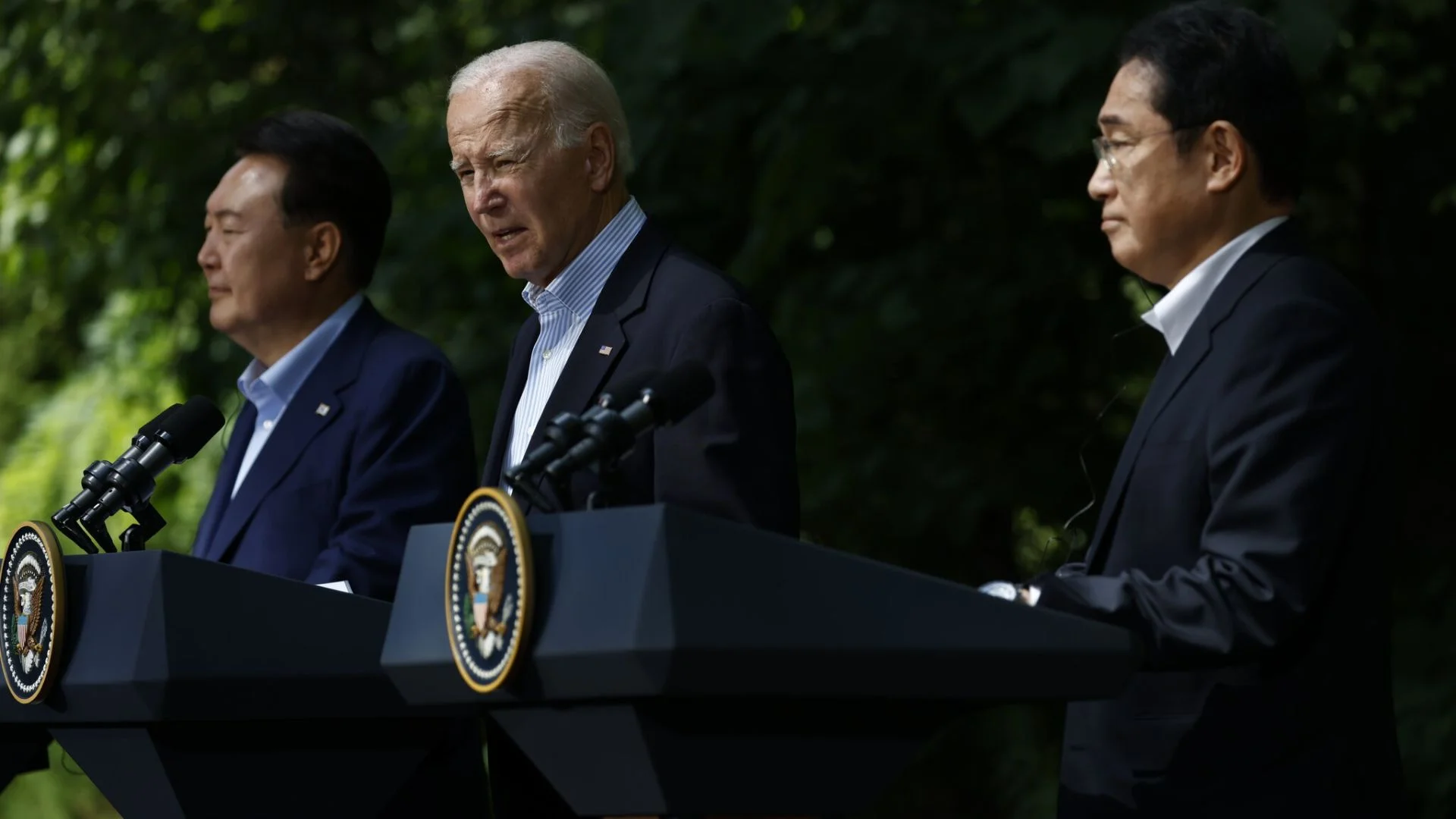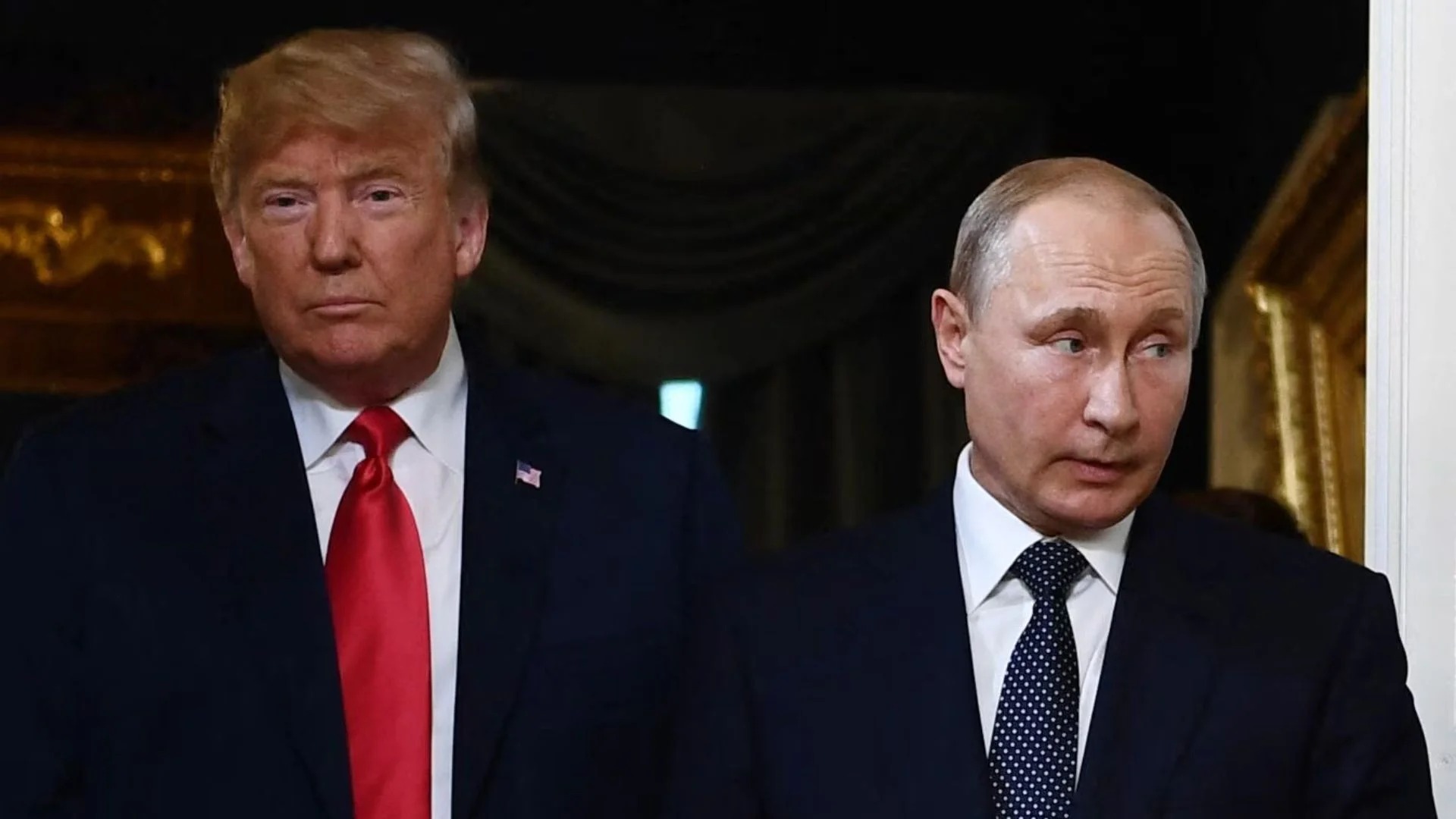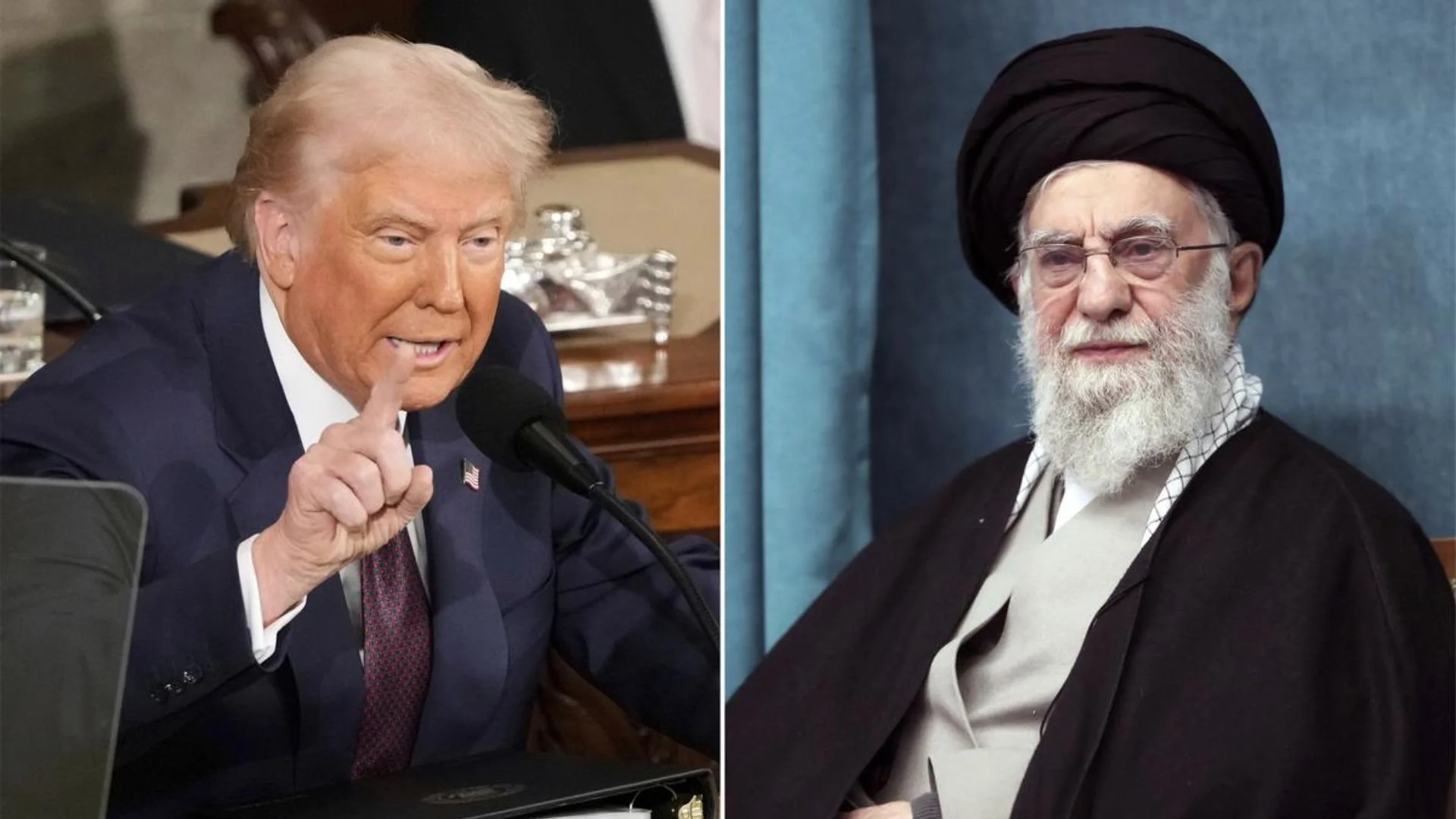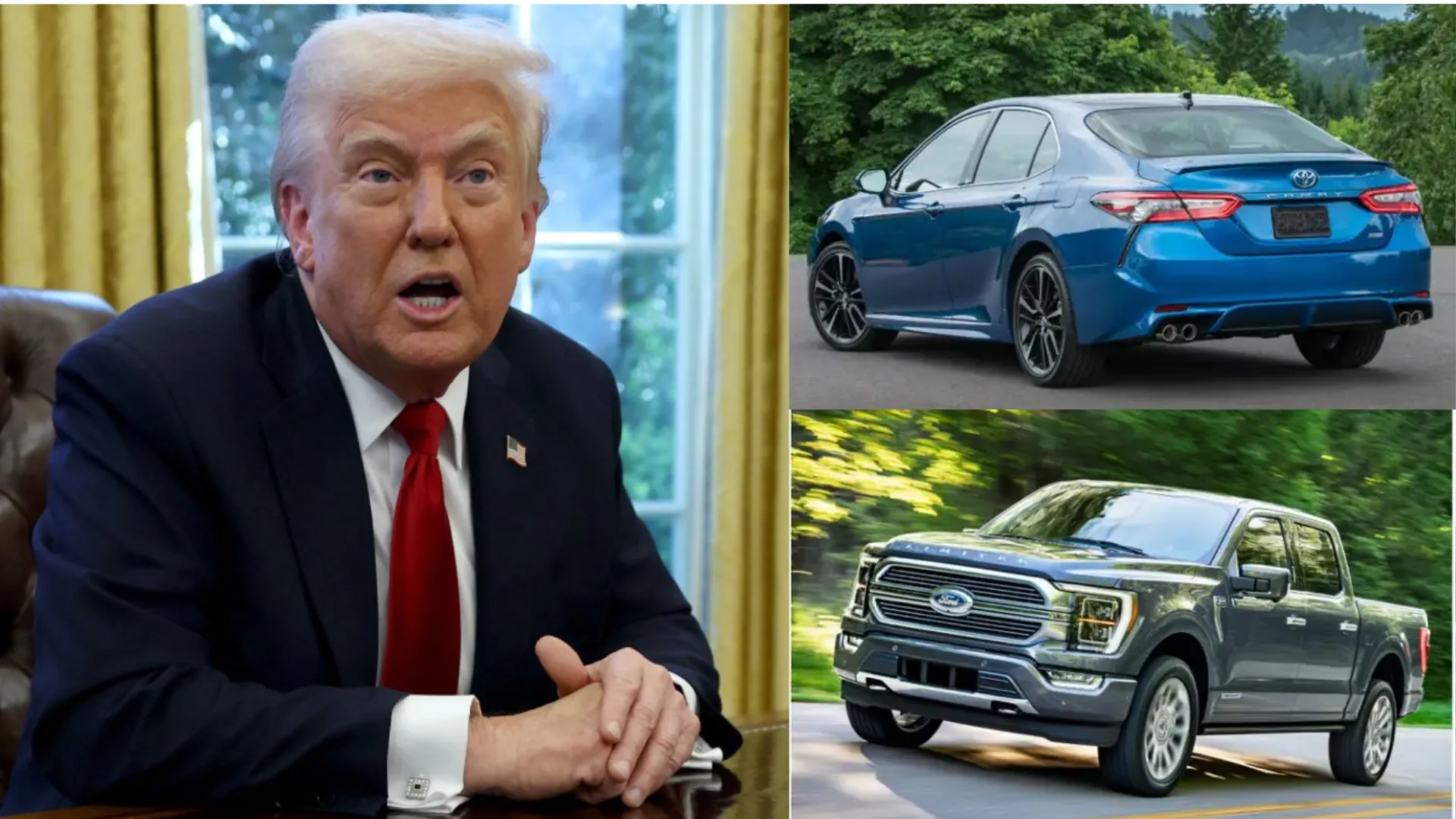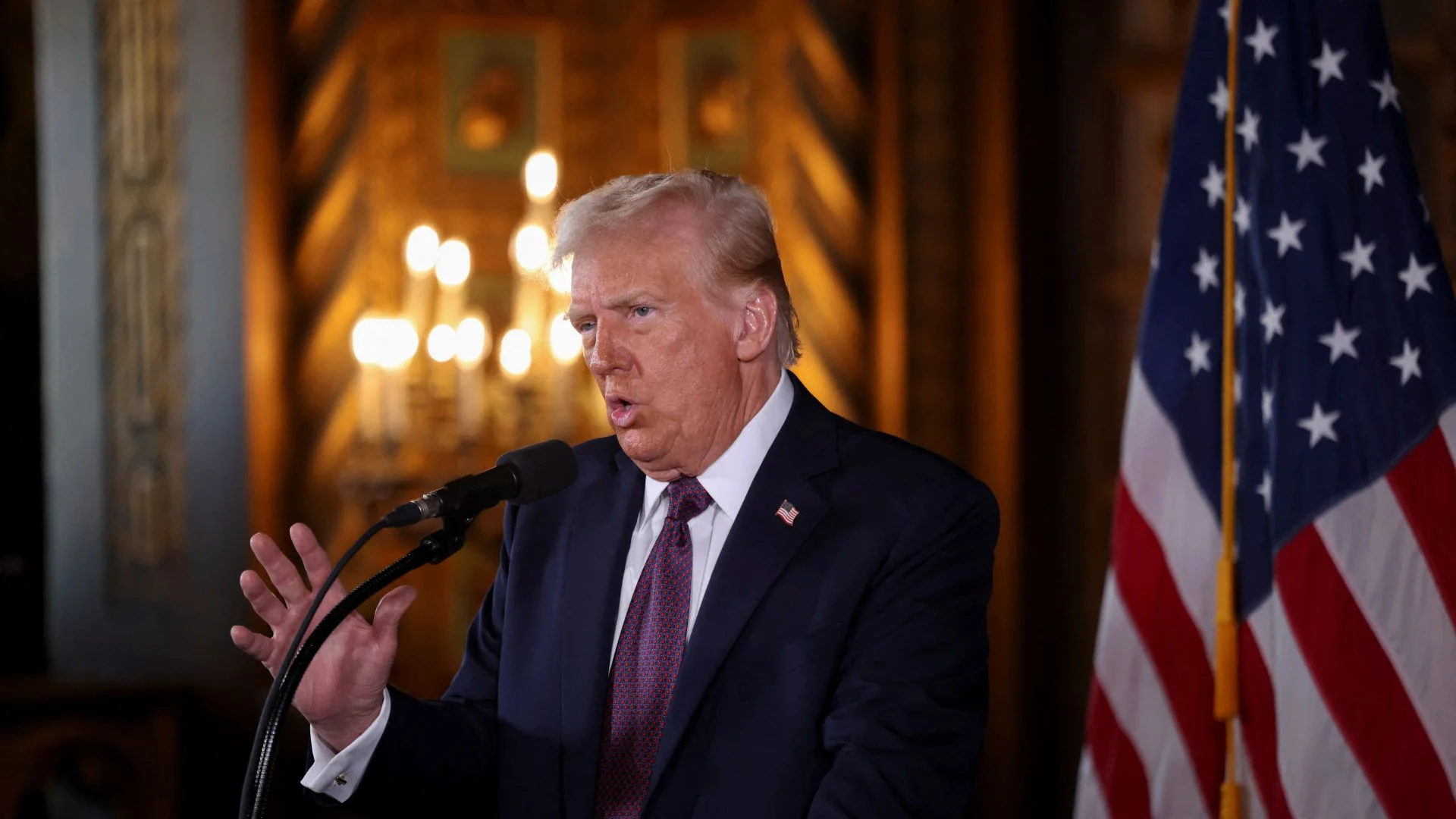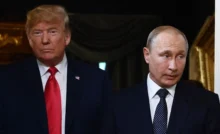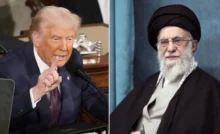US President Joe Biden convened with Japanese Prime Minister Shigeru Ishiba and South Korean President Yoon Suk Yeol at the Asia-Pacific Economic Cooperation (APEC) Summit in Lima, Peru, on Friday. The high-profile meeting aimed to bolster the trilateral relationship among the US, Japan, and South Korea ahead of anticipated foreign policy shifts under an incoming Trump administration.
The talks come as the US is expected to adopt a tougher stance toward China, with Trump set to reintroduce tariff hikes after his January 20 inauguration a move that could strain US-China relations and affect the global economy. Concerns are also escalating over North Korea’s recent military deployment to aid Russia’s ongoing conflict in Ukraine, alongside Pyongyang’s continued nuclear weapons program, adding tension in the Indo-Pacific region.
In a unified statement, the leaders condemned North Korea and Russia’s expanding collaboration, which they described as an intensification of Russia’s conflict in Ukraine. This joint statement, issued under the official names of each country, underscored a shared commitment to counter these destabilizing actions.
Biden, Ishiba, and Yoon further announced the establishment of a Trilateral Secretariat to formalize and sustain the partnership beyond individual summits. National security adviser Jake Sullivan highlighted that the Secretariat is intended to solidify the alliance and ensure continuity across future US administrations.
The meeting is seen as a capstone achievement of Biden’s administration, successfully bringing Japan and South Korea into closer alignment despite historic tensions rooted in Japan’s colonial occupation of Korea from 1910 to 1945. Close US-Japan-South Korea cooperation, according to Biden, will be instrumental in maintaining stability in the Indo-Pacific, a position China opposes.
In separate sessions, Yoon met with Chinese President Xi Jinping, while Ishiba and Biden are scheduled for individual talks with Xi during the APEC Summit.
Additionally, the three countries agreed to increase cooperative efforts with the Philippines in sectors such as ports, energy, and transportation. Meanwhile, uncertainty looms over Trump’s commitment to these trilateral engagements, given his previous focus on “America First” policies and fluctuating support for traditional allies.
“Historically, North Korea has taken provocative actions during presidential transitions,” Sullivan noted, signaling potential challenges for US foreign policy moving forward.


